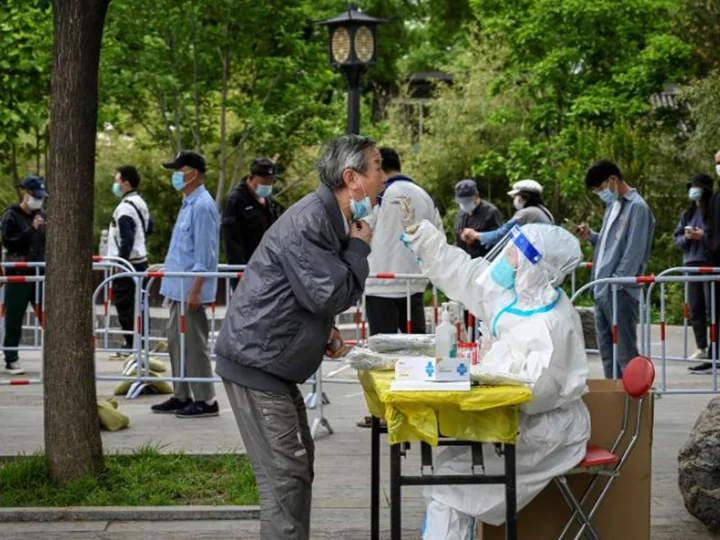China has failed to release data on how many cremations took place in the country at the end of 2022 -- obscuring a key indicator that could have shed light on the impact of the wave of Covid-19 infections that were sweeping the country at that time.
The national number of cremations was omitted from recent data from China's Ministry of Civil Affairs, which tracks a range of social indicators in quarterly reports.
A review of the past 10 years of ministry data shows the annual figure of cremations was consistently included in the fourth quarter data report -- until now.
The omission underscores the lack of comprehensive data on fatalities during the country's mass Covid-19 outbreak, which began late last year after authorities abruptly lifted stringent pandemic controls -- effectively allowing the virus to rip through its 1.4 billion population.
Experts have said the country's official data on deaths likely significantly underestimates how many people succumbed to the virus during that time, which Chinese officials have since claimed as part of their "major and decisive victory" over the pandemic.
In reality, the outbreak overwhelmed crematoriums, packed hospitals and left people scrambling for scarce medicines, exposing the government's lack of preparation for its policy U-turn, which followed rising economic costs and unprecedented public protests against its far-reaching controls.
Data on cremations are important because they could "provide relatively accurate information about excess deaths," according to Yanzhong Huang, a senior fellow for global health at the Council on Foreign Relations in New York.
Comparing the number of cremations from this period with previous years could have allowed researchers to calculate such "excess deaths" -- indicating how many people might have died of Covid.
"Since this data is not included, it signals that the number of excess deaths could be significant," Huang said.
The Ministry of Civil Affairs did not respond to a CNN request for comment on the omission.
Missing insight
Since the early days of the pandemic, Chinese officials have claimed a low death rate comparable to other places in the world, which they argued showed the success of China's approach to Covid-19.
While the rest of the world was hit by Covid before the advent of vaccines, China's tight border controls kept the virus largely at bay after its initial outbreak in the Chinese city of Wuhan, until more transmissible variants made that policy increasingly unsustainable and damaging.
In February, as the winter surge was winding down, China's ruling Communist Party's top decision-making body said its handling of the virus had "created a miracle in human history" as it had "successfully pulled through a pandemic."
Huang said "any information that contradicts that conclusion would make that official narrative incoherent," adding that this doesn't bode well for future releases of accurate information, including cremation data.
China has faced criticism of its data transparency throughout the pandemic, including how it counts Covid-19 deaths.
In January, a top WHO official accused China of "under-representing" the severity of its Covid outbreak, and repeated the agency's critique of Beijing's "narrow" definition of what constitutes a Covid death.
At that time, Chinese health officials only listed those Covid patients who succumbed with respiratory failure and pneumonia as having died of Covid. Officials reported fewer than 40 local deaths during the month prior to January 8, despite a widespread national outbreak across what was then the world's most populous country.
China later that month revised its criteria, yet its figures still only included people who had tested positive for the virus and died in hospitals, excluding those who died at home or at certain lower-level and rural health facilities.
There have been some 121,237 deaths reported to the World Health Organization (WHO) from China since the start the of outbreak in 2020, according to the global health agency's website, with the vast majority from the end of 2022 and early this year.
It's not clear if China plans to release the national data on cremations at a later date.
Several other indicators, including those related to social service facilities like child welfare were also dropped from the fourth quarter report, as compared with previous reports in recent years.
A link to the latest quarterly release, available earlier this week on the ministry page listing its quarterly reports, was no longer visible as of Friday afternoon, though the report was still accessible elsewhere on its website.









